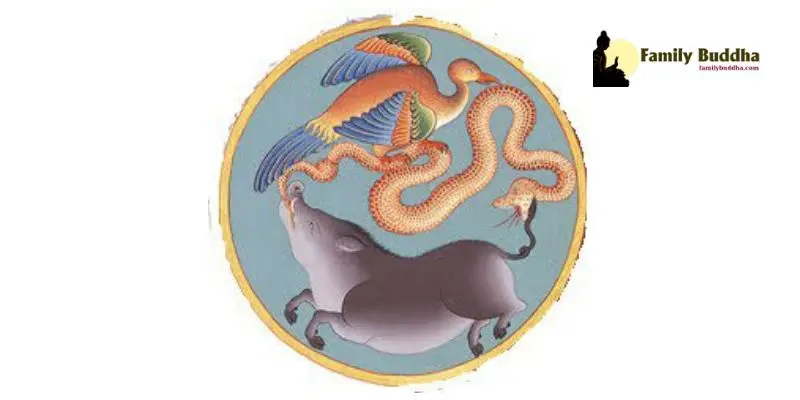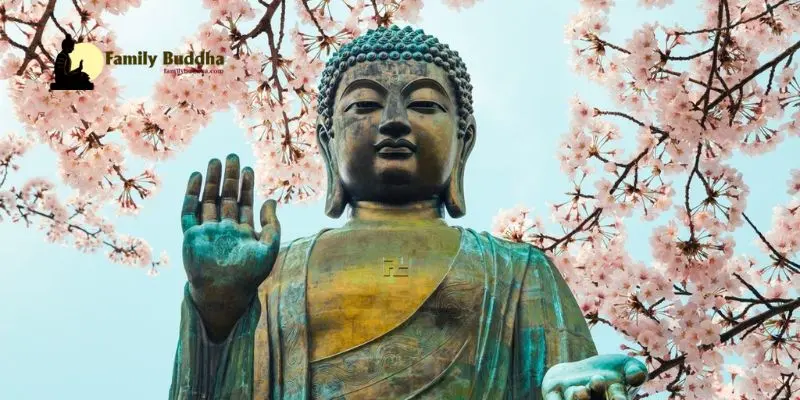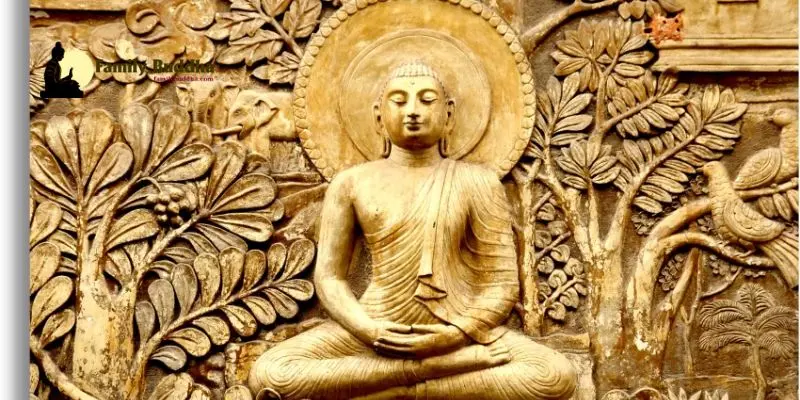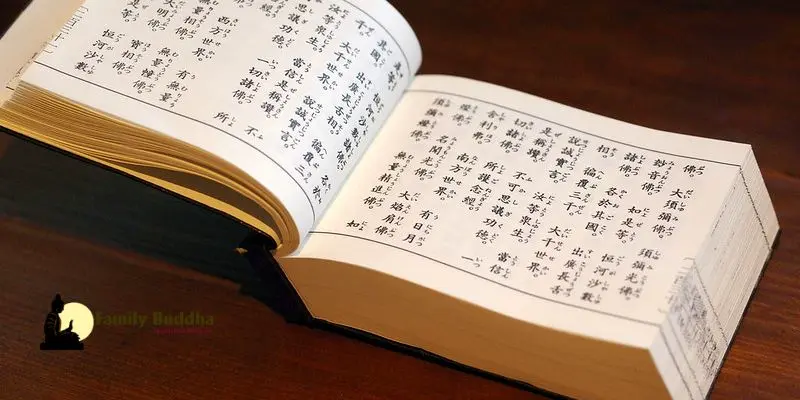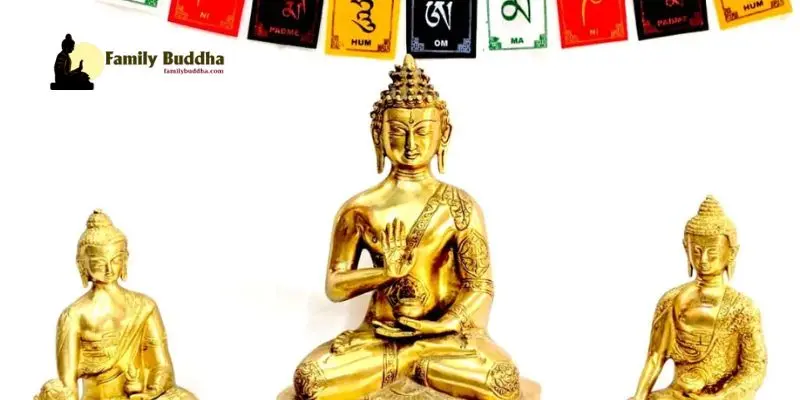In the intricate symbolism of the iconic Buddhist image of the Wheel of Life, or Bhavachakra, a pig, a cock, and a snake are depicted at the center, representing the Three Poisons – lobha (greed), dvesha (hate), and moha (ignorance). These Three Poisons in Buddhism are believed to be the source of all evil and negative mental states, fueling the cycle of samsara, where beings wander through endless cycles of birth, death, and rebirth, trapped in suffering. Let’s discover more at Familybuddha.com.
The Three Poisons are deeply rooted in the Buddhist understanding of human nature and the path to liberation. They are considered the root causes of unskillful or harmful actions, generating negative karma and perpetuating suffering for ourselves and others. To live a moral life and attain true happiness, it is essential to purify ourselves of these poisons as much as possible.
Moha, or Ignorance

Ignorance, represented by the pig in the Wheel of Life, is the first and most fundamental of the Three Poisons. It is the lack of understanding of the true nature of reality, the Four Noble Truths, and the principles of cause and effect. Ignorance veils our perception, causing us to cling to false beliefs, misconceptions, and delusions.
The Veil of Ignorance
Ignorance acts as a veil, obscuring our vision and preventing us from seeing things as they truly are. It distorts our perception of reality, leading us to grasp at impermanent phenomena as if they were permanent, to cling to the notion of a separate self, and to seek happiness in transient pleasures.
Misconceptions and Delusions
Ignorance breeds misconceptions and delusions, such as the belief that happiness can be found in material possessions, sensual pleasures, or power over others. It causes us to misunderstand the nature of suffering and its causes, leading us to pursue temporary gratification rather than addressing the deeper roots of our dissatisfaction.
Ignorance and Karma
Ignorance also plays a crucial role in the accumulation of negative karma. When we act out of ignorance, our actions are unskillful and lead to harmful consequences for ourselves and others. This perpetuates the cycle of suffering and keeps us bound to the cycle of samsara.
The Path to Wisdom
To overcome ignorance, we must cultivate wisdom and understanding through study, contemplation, and direct experience. This involves:
- Learning and practicing the teachings of the Buddha
- Developing mindfulness and awareness of our thoughts, emotions, and actions
- Engaging in meditation to gain insight into the true nature of reality
By dispelling ignorance, we can break free from the cycle of suffering and attain true happiness and liberation.
Greed and Hatred: The Offspring of Ignorance
Ignorance is the root from which greed and hatred, the other two poisons, arise. When we are ignorant of the true nature of reality, we cling to false beliefs and misconceptions, leading to an insatiable desire for gratification (greed) and aversion towards that which obstructs our desires (hatred).
Dvesha, Hate
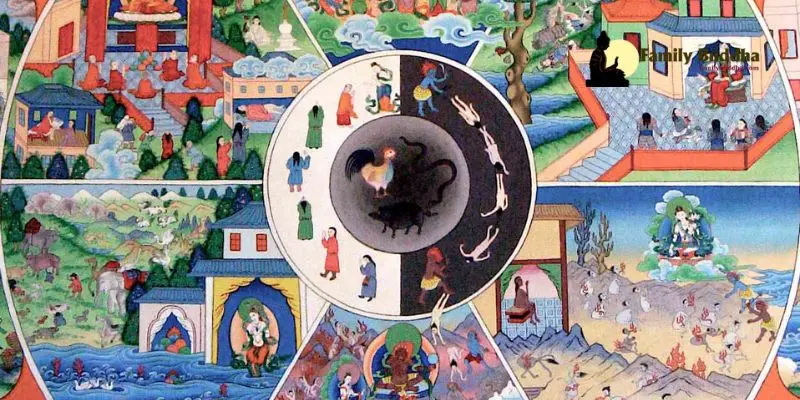
Hate, represented by the snake in the Wheel of Life, is the second of the Three Poisons. It encompasses a range of negative emotions, including anger, resentment, aversion, and ill-will towards others.
The Manifestations of Hate
Hate can manifest in various forms, such as:
- Anger and rage, which can lead to verbal or physical violence
- Resentment and bitterness, which poison our minds and relationships
- Aversion and repulsion towards others or situations we dislike
- Ill-will and the desire to harm or cause suffering to others
The Consequences of Hate
Hate has profound negative consequences, both for ourselves and those around us. It:
- Clouds our judgment and hinders our ability to think clearly
- Damages our relationships and creates conflict
- Generates negative karma, perpetuating the cycle of suffering
- Causes physical and emotional harm to ourselves and others
The Root of Hate
Hate often arises from our inability to accept or understand situations that do not align with our desires or expectations. It can also stem from feelings of insecurity, fear, or a sense of being threatened or wronged.
Overcoming Hate
To overcome hate, we must cultivate compassion, understanding, and equanimity. This involves:
- Developing mindfulness and awareness of our thoughts and emotions
- Practicing forgiveness and letting go of resentment
- Cultivating empathy and trying to understand others’ perspectives
- Embracing patience and acceptance of situations we cannot change
By replacing hate with compassion and understanding, we can break free from the cycle of negativity and create more harmonious relationships with others.
Lobha, Greed
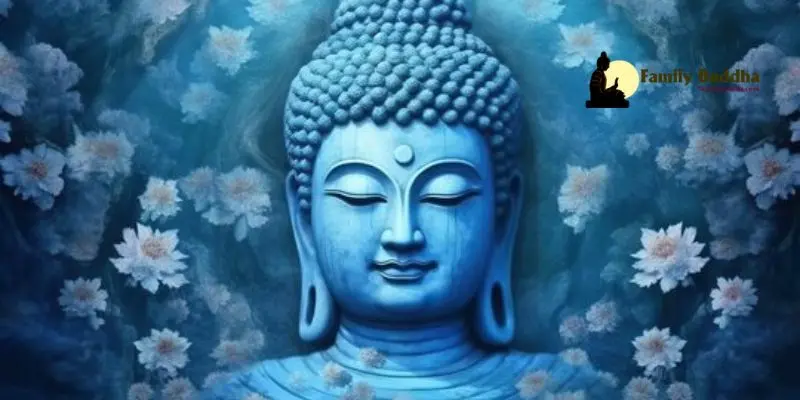
Greed, represented by the cock in the Wheel of Life, is the third of the Three Poisons. It is the insatiable desire for more – more possessions, more pleasure, more power, more recognition, and so on.
The Insatiable Nature of Greed
Greed is characterized by an endless craving for more, dissatisfaction with what we have, and a constant pursuit of gratification. It is fueled by the belief that happiness and fulfillment can be found in external possessions or experiences.
The Illusion of Satisfaction
However, the satisfaction derived from fulfilling our desires is fleeting, and the cycle of craving and dissatisfaction continues. Greed creates an illusion that happiness can be found in acquiring more, but it ultimately leaves us feeling empty and unfulfilled.
The Consequences of Greed
Greed can have severe consequences, both personal and societal:
- It can lead to unethical or illegal actions to acquire more wealth or possessions
- It can damage relationships and breed envy and resentment towards those who have more
- It can contribute to environmental destruction and the exploitation of natural resources
- It can fuel societal issues such as inequality, poverty, and oppression
Overcoming Greed
To overcome greed, we must cultivate contentment, gratitude, and a sense of sufficiency. This involves:
- Practicing mindfulness and being present with what we have
- Developing gratitude for the blessings and abundance in our lives
- Simplifying our lives and letting go of attachments to material possessions
- Cultivating generosity and sharing our resources with others
By embracing contentment and letting go of the insatiable desire for more, we can find true happiness and freedom from the cycle of dissatisfaction.
Conclusion about three poisons in Buddhism
The Three Poisons – ignorance, hate, and greed – are deeply rooted in the human experience and are the source of all evil and negative mental states. They fuel the cycle of samsara, perpetuating suffering and preventing us from attaining true happiness and liberation.
However, by cultivating wisdom, compassion, and contentment, we can overcome these poisons and break free from the cycle of suffering. This journey requires dedication, mindfulness, and a commitment to understanding the true nature of reality.
Through the teachings of the Buddha and the practice of the Noble Eightfold Path, we can purify our minds, let go of our attachments, and embrace a life of peace, harmony, and awakening. The path may be challenging, but the rewards of overcoming the Three Poisons are profound – a life of true happiness, freedom, and the realization of our highest potential

